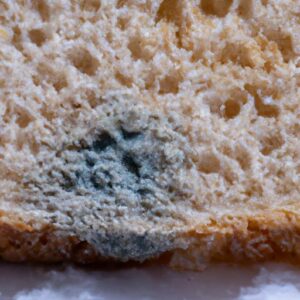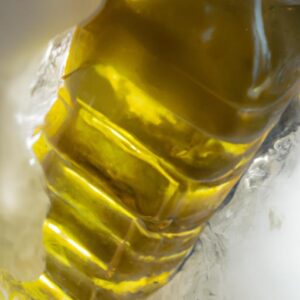Cooking is not just about creating delicious meals; it’s also about ensuring the safety of the food we consume. As a conscious home cook, you may have come across concerns regarding the safety of cooking with aluminum foil. Are these concerns valid, or are they simply myths? In this article, we will delve into the topic and explore whether cooking with aluminum foil poses any risks to our health. So, let’s put on our chef hats and dig in!
Importance of Safe Cooking Practices
Before we dive into the specifics of aluminum foil safety, it’s crucial to understand the significance of safe cooking practices. We all want to enjoy a scrumptious meal without compromising our well-being, right? By adopting safe cooking practices, we can minimize potential risks and create a healthier dining experience for ourselves and our loved ones.
Concerns Regarding the Safety of Cooking with Aluminum Foil
Aluminum foil has been a kitchen staple for decades, but it has also been surrounded by concerns related to its use in cooking. Questions arise about the potential health risks associated with aluminum leaching into food during the cooking process. It’s essential to address these concerns and separate fact from fiction to make informed decisions about the materials we use in our kitchens.
Overview of the Article’s Purpose
In this article, we aim to provide you with a comprehensive understanding of the safety of cooking with aluminum foil. We will explore scientific research, debunk common misconceptions, and discuss potential health risks associated with the use of aluminum foil in cooking. By the end of this article, you will have the knowledge you need to make an educated choice about whether to continue using aluminum foil or explore alternative options.
Now that we have set the stage, let’s move forward and uncover the truth about cooking with aluminum foil. Are you ready? Let’s get cooking!
Understanding Aluminum Foil
A Brief History and Composition of Aluminum Foil
To truly understand the safety concerns related to cooking with aluminum foil, it’s essential to delve into its origin and composition. Aluminum foil was first developed in the early 20th century and quickly became a popular household item due to its versatility and convenience. It is made by rolling aluminum metal into thin sheets, which are then processed to enhance their flexibility and strength.
Common Uses of Aluminum Foil in Cooking
Aluminum foil has found its way into numerous cooking practices, thanks to its unique properties. From wrapping food for grilling or baking to covering dishes and storing leftovers, its ability to withstand high temperatures and distribute heat evenly makes it a go-to choice for many home cooks. Additionally, aluminum foil is often used for creating foil packets, which help seal in moisture and flavors during cooking.
Potential Risks Associated with Aluminum Exposure
While aluminum foil is widely used in the culinary world, concerns have been raised about the potential risks of aluminum exposure. It is important to note that these risks primarily revolve around prolonged and excessive exposure to aluminum, rather than the occasional use of aluminum foil in cooking. Studies suggest that when acidic or highly spiced foods come into contact with aluminum foil, a small amount of the metal may leach into the food. However, it’s important to put this into perspective. The World Health Organization (WHO) states that the average human intake of aluminum from food is generally considered safe and does not pose a health risk.
However, certain individuals may be more susceptible to the potential health risks associated with aluminum exposure. Those with kidney diseases or who are undergoing dialysis should exercise caution, as their bodies may struggle to eliminate excess aluminum. Additionally, it is advised to avoid using aluminum foil with high-acid foods, such as tomatoes or citrus fruits, as the acidity can increase the leaching process.
Now that we have a better understanding of aluminum foil, its composition, and potential risks, let’s dive deeper into debunking the myths surrounding its safety.
Debunking Myths Surrounding Aluminum Foil
A. Addressing Misconceptions about Aluminum Foil’s Impact on Health
There’s no shortage of myths and misconceptions surrounding the impact of aluminum foil on our health. Is it really true that using aluminum foil in cooking can lead to detrimental health effects? Let’s separate fact from fiction.
One common misconception is that aluminum foil can cause Alzheimer’s disease. However, scientific research has debunked this claim. The Alzheimer’s Association clearly states that there is no definitive evidence linking aluminum exposure from sources like cookware or foil to the development of Alzheimer’s disease. So, you can put that worry to rest.
B. Exploring Scientific Research on Aluminum Foil Safety
To truly understand the safety of cooking with aluminum foil, it’s essential to explore the scientific research conducted in this area. Numerous studies have been conducted to assess the potential risks associated with aluminum foil, providing us with valuable insights.
Research suggests that while small amounts of aluminum can leach into food during cooking, the levels are generally considered safe for consumption. In fact, a study published in the International Journal of Electrochemical Science found that the amount of aluminum transferred to food was minimal and within acceptable limits.
C. Clarifying the Difference between Aluminum Leaching and Absorption
It’s important to differentiate between aluminum leaching and absorption when discussing the safety of cooking with aluminum foil. Leaching refers to the transfer of small amounts of aluminum from the foil to the food, while absorption refers to the body’s ability to take in and utilize the aluminum.
While some leaching may occur, the absorption of aluminum through ingestion is limited. The human body has a remarkable ability to regulate and excrete aluminum, ensuring that it does not accumulate to harmful levels. So, even if a small amount of aluminum is present in your food due to cooking with aluminum foil, it does not necessarily mean it will be absorbed into your system.
Now that we have debunked some common myths and explored the scientific research, it’s time to move on and delve deeper into the potential health risks associated with cooking with aluminum foil. Let’s separate fact from fiction and equip ourselves with the knowledge we need to make informed decisions.
Tips for Safe Cooking with Aluminum Foil
Cooking with aluminum foil doesn’t have to be a cause for concern. By following some simple guidelines, you can minimize any potential risks and ensure a safe cooking experience. Here are some helpful tips to keep in mind:
A. Best Practices to Minimize Aluminum Leaching During Cooking
To reduce the chances of aluminum leaching into your food, consider the following practices:
-
Use a barrier: Place a layer of parchment paper or a heat-resistant silicone baking mat between the aluminum foil and the food. This creates a barrier that prevents direct contact and minimizes aluminum transfer.
-
Avoid acidic or salty foods: Acidic and salty ingredients can increase the leaching of aluminum. If possible, refrain from cooking highly acidic or salty foods in direct contact with aluminum foil.
-
Use non-reactive cookware: Opt for stainless steel, glass, or ceramic cookware when possible. These materials are non-reactive and provide a safer alternative to aluminum foil.
B. Alternatives to Aluminum Foil for Specific Cooking Purposes
If you prefer to minimize or avoid the use of aluminum foil altogether, here are some alternative options for specific cooking purposes:
-
Parchment paper: It is an excellent substitute for wrapping foods or creating pouches. Parchment paper is non-stick and can withstand moderate heat, making it ideal for baking and roasting.
-
Silicone baking mats: These reusable mats are made from food-grade silicone and can be used as a non-stick surface for baking, roasting, and even grilling.
-
Glass or ceramic containers: For storing and reheating leftovers, consider using glass or ceramic containers with lids. They are microwave-safe and eliminate the need for aluminum foil during reheating.
C. Proper Handling and Storage of Aluminum Foil
To ensure the safety of your aluminum foil usage, keep the following tips in mind:
-
Avoid using damaged or heavily scratched foil: Damaged or scratched foil can increase the likelihood of aluminum leaching into food. Discard any foil that appears damaged or excessively scratched.
-
Store aluminum foil properly: Keep your aluminum foil in a cool, dry place away from direct sunlight and moisture. Storing it correctly helps maintain its integrity and reduces the risk of contamination.
By implementing these tips, you can confidently cook with aluminum foil while minimizing potential health risks. Remember, it’s all about making informed choices and taking precautions to create a safe and enjoyable cooking experience.
Stay tuned for the next section where we’ll wrap up our exploration and draw a conclusion on the safety of cooking with aluminum foil.
Conclusion
After a thorough exploration of the topic, it is clear that the safety of cooking with aluminum foil is a subject that warrants attention. While some studies suggest the potential for aluminum leaching into food, it is important to consider the context and magnitude of such exposure. The overall consensus among experts is that occasional use of aluminum foil in cooking is unlikely to pose significant health risks for the general population.
Examining studies on aluminum leaching into food reveals that the amount of aluminum transferred is typically minimal and well below established safety limits. However, it is advisable to exercise caution, especially when cooking acidic or salty foods, as these may enhance aluminum leaching. By adopting best practices such as avoiding direct contact between aluminum foil and these types of foods, you can further minimize any potential risks.
Identifying potential health concerns linked to aluminum intake is crucial. While studies have highlighted associations between high aluminum levels and certain health conditions, such as neurodegenerative diseases, it is important to note that these studies primarily focus on occupational exposure or individuals with pre-existing vulnerability. The general population is not typically exposed to aluminum in levels that would lead to such adverse effects.
Highlighting vulnerable populations and their susceptibility to aluminum toxicity is essential. Individuals with kidney dysfunction or on dialysis may have difficulty eliminating excess aluminum from their bodies, making them more susceptible to aluminum toxicity. It is advisable for these individuals to consult with their healthcare providers to determine the best course of action regarding aluminum foil usage.
In conclusion, cooking with aluminum foil can be considered safe for the majority of individuals when used in moderation and with proper precautions. By following best practices, being mindful of food selection, and considering individual circumstances, you can confidently continue to utilize aluminum foil as a convenient cooking tool. Remember, the key to a safe and enjoyable culinary experience lies in informed decision-making and maintaining a balanced approach to cooking practices. Happy and safe cooking!


